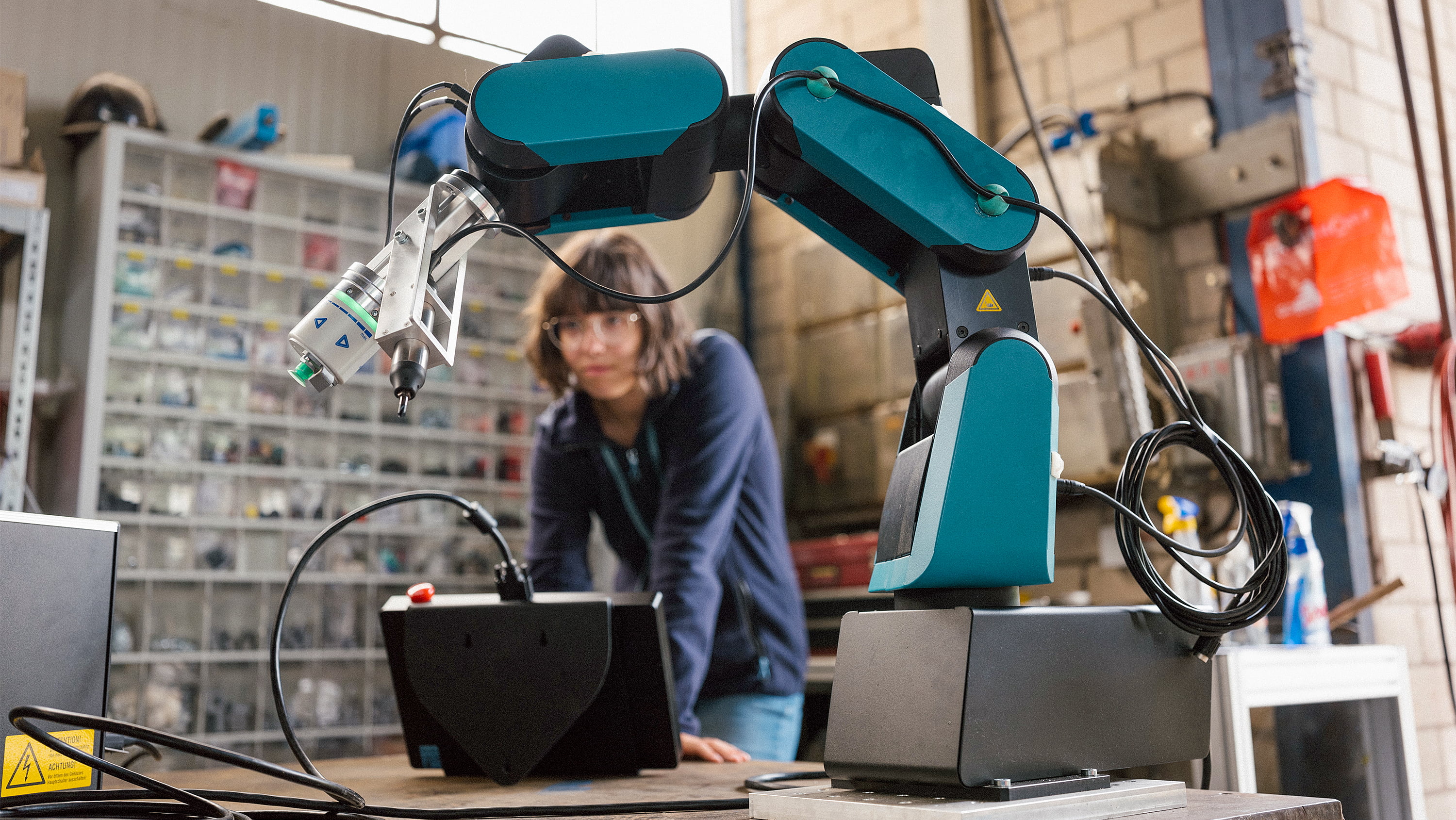The University of Alberta’s Faculty of Engineering is launching a new undergraduate degree program integrating the high-demand fields of robotics and electrical, computer and mechanical engineering.
The five-year program — including 20 months of industry co-op placement — will be the first of its kind in the Prairie provinces. It is a direct response to the aims of the Alberta 2030: Building Skills for Jobs strategy, helping Alberta become a “technology hub” to attract top talent from around the world.
Since few of today’s technological devices and systems are purely mechanical or electrical, the Mechatronics and Robotics Program will provide students with the skills needed to solve complex problems in product design, manufacturing and maintenance.
“A big part of this program is getting students to think in systems,” says Associate Dean of Engineering Pierre Mertiny. “Mechanical and electrical engineers typically focus on components, and if they need to design a system, they start thinking upwards from the components.
“Mechatronics engineers think the other way around. They think big-picture system, and then break that down to components.”
The mechanical and electrical engineering programs are already the most popular in the faculty, he says, but there has been growing demand for mechatronics, with students inquiring about training in the field for years.
“Students want to create the next generation of the world we live in — all the gadgets and the automated systems. They can see that many of the positive changes in the world seem to be linked to them.”
Mechatronics also requires expertise in the rapidly accelerating field of artificial intelligence, he adds.
More and more of today’s industries are becoming automated, including automotive manufacturing, chemical production, oil and gas mining and refining, energy grids, aerospace engineering, precision health care and drones for environmental monitoring. They are also central to emerging green-energy technology.
Even the residential and commercial building industry is becoming increasingly automated. Landmark Homes, for example, founded by U of A engineering graduate Reza Nasseri, fabricates home components with robotic systems.
“Companies like that often can’t find qualified people in Alberta, so they have to recruit mechatronics graduates from Eastern Canada,” says Mertiny.
“Students who come from our program will be able to hit the ground running with an understanding of controls, sensors — all the hardware used in systems. And they’ll be skilled at problem-solving.”
A joint venture between the departments of mechanical engineering and electrical and computer engineering, the new program will require new faculty members who specialize in mechatronics and robotics to teach the additional 100 students, says Mertiny. The program’s first cohort will begin specializing in mechatronics and robotics in the fall of 2025 after completing a foundational first-year engineering program.
The program proposal includes a “robotics playground” or learning lab where students have the freedom to solve problems on their own. A mechatronics industry advisory committee will also guide the program to ensure it aligns with industry needs.
“This is just the beginning, and I am confident that the mechatronics and robotics engineering co-operative program will serve as a cornerstone in our efforts to deliver exceptional engineering education for years to come,” says Simaan AbouRizk, dean of engineering.
“Together, we will continue to build on this success and position the Faculty of Engineering as a leader in innovative, interdisciplinary education.”
